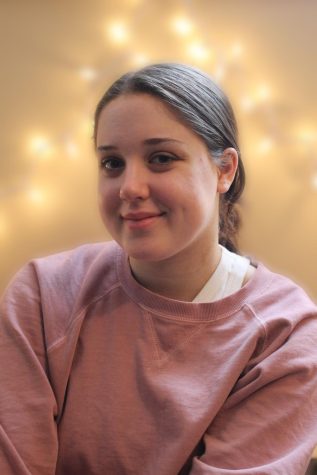New class offerings give students flexibility
March 16, 2021
With Advising Day around the corner, professors are introducing their new course offerings. These course offerings include additions in the Dahlkemper School of Business, the School of Communications and the Arts (SCA) and the School of Engineering and Computer Science.
There will also be a new minor offered. The minor is a creativity and innovation minor. Mary C. Gensheimer, director of the SCA, said this new minor will seek to bridge the three colleges around campus into one program for the purpose of expanding innovation.
“There is no lone wolf creative,” Gensheimer said. “I believe that if people are open enough to it, and given the right tools anyone can be creative if they choose to be.
“It’s the integration of all colleges. Everyone brings a skill set and we need them all to make a product successful.”
The courses will be a mix including the business and humanities sectors with professors engaging in a team-taught setting all focusing on innovation.
The minor is 15 credits and is set up to start with an introductory course that welcomes students into the minor.
The minor then moves students along a track that offers a speech class “The Pitch,” which satisfies the liberal arts requirement, the “lore” literature class, satisfying the English Literature requirement, the “labyrinth” class, which focuses on the philosophy II requirement and the prototype, which focuses on the Fine Arts requirement.
Lastly, the minor ends with the blast off course, which is the course that sends students into the workplace.
The application for the minor is due Friday, March 26.
Also from the SCA comes a life skills taught by Anne O’Neill, an associate teaching professor of communications. The class is a one-credit course that will prepare students for life after graduation. It will cover everything from etiquette skills to financial planning skills such as talking about credit ratings and reports and mortgages.
“The student does not have to be a communications major to take this course,” O’Neill said. “It is designed for anyone that wants to feel a bit more ready for life after graduation.”
“I want to prepare students for what it’s going to be like when they’re approached by a prospective employer and asked ‘Well, what are your expectations in the way of benefits and saying I don’t know, what are the benefits available?’ or being asked questions by a prospective landlord — what can a landlord ask? What can a landlord do?”
In the business school, there will be a quality management class that comes with a certification that Celene Kalivoda, D.B.A., an assistant professor, said will help students earning supply chain management degrees.
“I think it’s a great way for students to finish out their college careers and be able to have those certifications on their resume when they’re applying for jobs,” Kalivoda said.
Falling in line with the business school curriculum, there will also be a new forensic accounting track within the accounting department that combines business with criminal justice. Renee Castigano, an associate accounting professor, said it allows students the freedom to choose electives in the criminal justice program.
Castigano said that this would give accounting majors, as well as criminal justice majors another path to pursue on the road to relevant study outlets.
Lastly, there will be a new track of biomedical engineering that stems from electrical engineering. The original biomedical track began in 2012 and has since been updated to allow this new opportunity for students.
Karinna Vernaza, Ph.D., dean of the College of Engineering and Business, said that many changes had occurred in the school of business in the previous two years including revising concentrations, requiring 21 credits for most concentrations and courses that are now required and will be offered.
Vernaza said that reforms had been made to the graduate level, including the completion of a first-year business analytics MBA program and mandated computer science courses.
“Our goal was to revise the undergrad curriculum as we have done with the graduate the previous year and we are now deploying that whole curriculum,.”
“On the engineering side we have to revise curriculum regularly as a requirement of our accreditation,” Vernaza said. “I think at the same time, every curriculum needs to be looked at when you survey your employers, where you survey students after graduation to see what are the areas that need either enhancement or are missing,” Vernaza said.
Classes being offered are related to the biomedical engineering –bioelectric track, executive leadership and human resources management and the accounting concentration with the option to add a forensic accounting track as opposed to a traditional accounting track.
All of these classes will be open to students who meet the requirements. Students can consult their advisers on Advising Day which takes place on Wednesday, April 7.
Students interested in finding out more about these academic opportunities should contact their advisers for more information.






